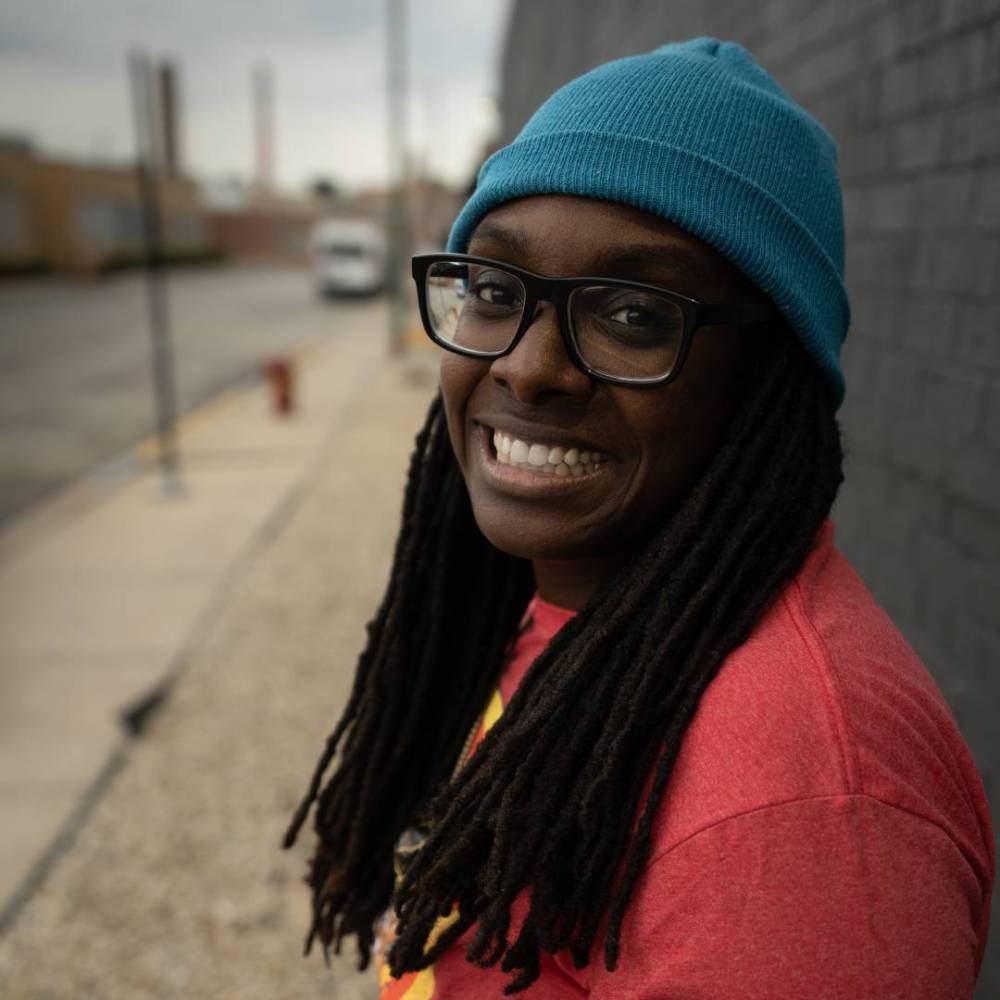Image via John Hull
Michael McKinney understands the cultural importance of Kreayshawn’s “Gucci Gucci.”
If you roll the clock all the way back, you’ll find a various-artists compilation. Jerrilynn Patton, a.k.a. Jlin, debuted on 2011’s Bangs & Works Vol. 2, a record that showed off the range of footwork in that particular moment. The Chicago-born genre is intimately tied to dance, with jackknifing drums locked in an unending arms race with whirlwinding sneakers. On a compilation stacked with veterans and newcomers alike, Jlin’s tracks stood out: on “Erotic Heat,” she offered up million-ton minimalism, and, on “Asylum,” wrapped icy hi-hats around blood-boiling horns. Even here, her sound was uncompromising and thoroughly idiosyncratic; it took the idioms of footwork and rocketed them into pitch-black parts unknown.
Patton made good on that promise. Dark Energy, her debut LP, takes a sieve to footwork’s idioms, filtering it all down to its essence and filling the empty space with a miasmic haze. It’s both manic and a bit disorienting. Tellingly, the third track—“Guantanamo”—is built around a sample from The Ring. It’s positively skin-crawling stuff, full of serrated synthesizers and arachnoid drum kits. Black Origami, her follow-up record, is positively kaleidoscopic by comparison: a maddening pile-up of whirlwinding hand drums, rattling hi-hats, garbled vocal samples. It’s footwork-adjacent, to be sure, but, in what’s proven to be a pattern for Patton, that’s hardly the whole story. This is polyrhythmic drum music built upon crumpled timelines and collapsed histories.
Since then, Patton has moved further and further into body music, bringing more names into the fold along the way. In 2018, she scored Wayne McGregor’s Autobiography. The titular dance piece is built around McGregor’s DNA, and Jlin’s work seems to be in a perpetual double-helix: the stage, another kind of dancefloor, is a venue for drums and dancers, each circling each other until it’s a full-on frenzy. That same year, San Francisco’s resident modern-classical headspinners Kronos Quartet commissioned her to compose a piece for them, and she gave the cellist a bass drum. In 2021, she worked with Kyle Abraham and A.I.M, scoring for a reimagining of Mozart’s Requiem in D minor.
Her most recent projects take her mutant drum-funk into another kind of conversation. Perspectives, for which she Patton was named a 2023 Pulitzer Prize in Music finalist, was composed for Third Coast Percussion, a percussion quartet based in—where else?—Chicago, the birthplace of footwork. Patton no longer considers herself a footwork producer, and it’s not hard to see a reason why. She may have started there, but, now, her work is defined not by genre but instead by her tendency to sprint headlong down blind alleys.
After the release of Perspectives, which saw Third Coast rearranging her DAW assemblages into something for human hands, Patton is releasing the original recordings. Titled Perspective, the record exists at all sorts of intersections. It shows the million limbs that Patton has affixed to her drums; put this back-to-back with Bangs & Works or Dark Energy and you’ll hear a few wildly different producers. It underlines her fascination with music for bones and muscle; its relentless rhythms invite all sorts of dance, whether on stage, in the street, or behind the drum kit. It balances moments of bone-crunching weight with lighter-than-air minimalism, prizing neither and finding a third way through.
In late August, we got a chance to sit down with Patton, digging into her history with dance music, her approach to composition, and about her superpowers as a producer.
(This interview has been condensed and lightly edited for clarity.)

